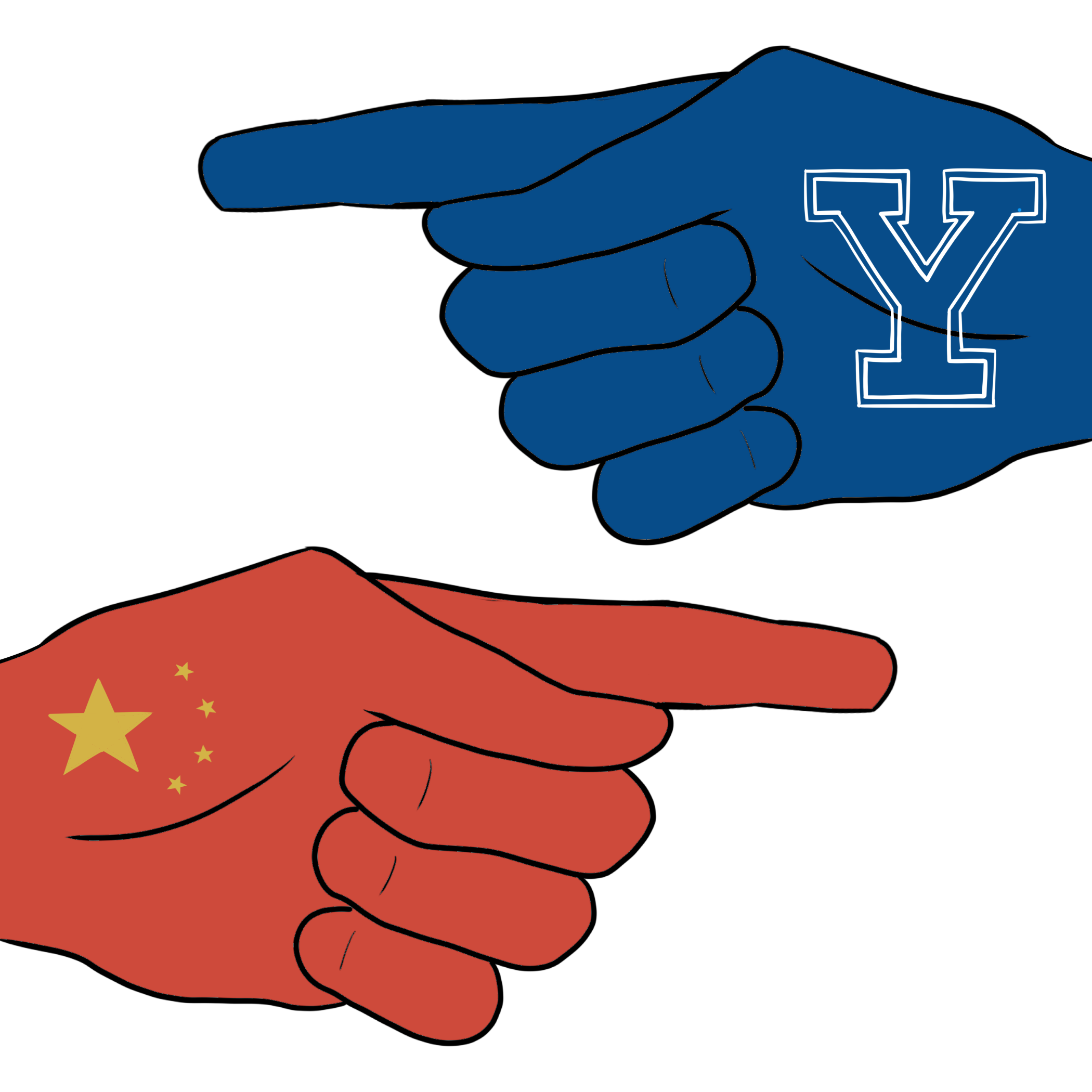A year after Lin suspension ends, faculty call for support from admin during federal investigations
Chinese professors at Yale are urging administrators to make updates to the faculty handbook for potential future investigations..

Sophie Henry, Staff Illustrator
Almost a year after School of Medicine professor Haifan Lin returned to campus from a University ordered suspension, Chinese professors at Yale remained concerned about the administration’s ability to protect its faculty in the face of federal investigations.
Last March, the Department of Justice dropped all charges against Lin after a two month-long investigation into him on the basis of the China Initiative, a U.S. government effort which claimed to identify and prosecute alleged Chinese spies participating in economic espionage within American universities and research institutions.
While the China Initiative and investigation into Lin have both formally ended, six Chinese faculty who spoke to the News expressed worry that Yale lacks formal pathways for professors to defend themselves if potential future investigations arise. Faculty interviewed by the News raised concerns with the resources provided in the Faculty Handbook — a key tool for guiding administrative efforts in supporting faculty members.
“A lot of faculty who come from all different corners of the world of different ethnicity [and] different nationality — they all join hands trying to call the University into setting more transparent, more reasonable, more clearly defined rules in the Faculty Handbook,” assistant professor of Applied Physics Yu He said.
According to assistant professor of Molecular, Cellular and Developmental Biology Jing Yan, there is a “strong asymmetry in power dynamics” between administrators and faculty. A single faculty member, especially those of lower rank or position, lacks the legal and administrative support needed to defend themself in a government investigation, he said. Yongli Zhang, an associate professor of cell biology at the School of Medicine, added that there is often “big pressure” for an individual to defend themselves from such investigations.
Siyuan Wang, an assistant professor at the School of Medicine suggested that efforts like the China initiative and a broad lack of support from university administrators across the country has disincentivized Chinese talent from applying to research at American universities, and noted that in his own lab, he is receiving fewer postdoctoral applications from Chinese students than he did five years ago.
Wang, who is leading the effort to reform the handbook, said they have called for the handbook to be amended to prevent punishments from being implemented before an investigation is over. Notably, Lin was suspended before the completion of the DOJ investigation.
“There is a very disturbing feeling among the faculty, especially in faculty with Asian origin,” Yan told the News.
Yan added that the faculty handbook does not specifically denote what Yale should do if the government seeks an investigation against one of its professors. He called for such cases to be reviewed by a committee panel, noting that in recent cases, decisions are made privately by the administration and without outside consultation.
Wang and He — who were two of the professors that signed several letters to the provosts’ office requesting for changes to the faculty handbook to be made — told the News that their letters have not yet been met with concrete policy reform.
“We still have yet to hear a constructive response from the University, so I remain interested in seeing what they have to do next,” He said.
Steven Wilkinson, who serves as vice provost of Global Strategy, said that administrators are working to protect faculty against potential future investigations. According to Wilkinson, the University continues to work with other universities as well as national organizations to “press” the Biden administration and Congress for “rational changes to relevant laws.”
“We continue our efforts to work with Yale faculty to help them interpret the rules, which are often quite vague, and to keep them apprised of any changes,” Wilkinson wrote in an email to the News.
Chinese faculty at Yale expressed doubt about the University’s ability to face down government investigations. Weimin Zhong, an associate professor of MCDB, told the News that universities and research institutions across the nation “facilitated such abuses instead of standing up” to the U.S. government by complying with their investigations without resistance.
The Department of Justice announced the end of the China Initiative in February 2022.







